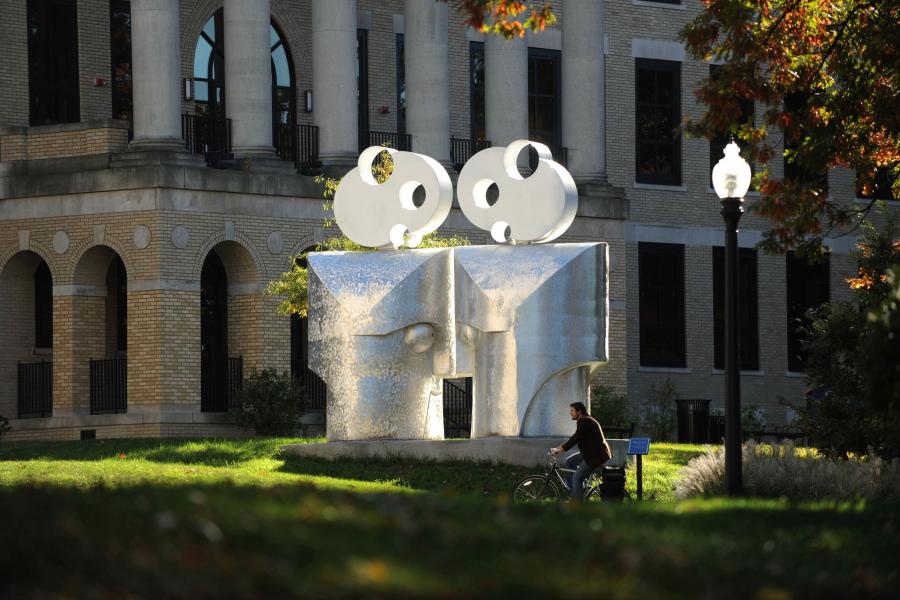Department of Biological Sciences

Center for Ecology and Natural Resource Sustainability highlights the Importance of Natural Lands

Kent State University Professor Receives NIH Grant to Automate Biomedical Data Processing
In the medical field, demand for technological advances that can speed data analysis and be less prone to human error continues to increase. Robert Clements recently received a federal grant to continue his work creating a more efficient and improved system to analyze medical data that will benefit not only the biomedical industry but also students at Kent State.

Kent State Researchers Challenge the Growing Antibiotic-Resistant Bacteria Problem With New Compound
“The pessimistic estimate is that by 2050, antibiotics could be obsolete,'' said Songping Huang, Ph.D., professor in the Department of Chemistry and Biochemistry in the College of Arts and Sciences. Huang and his Kent State team, including Min-Ho Kim, Ph.D., associate professor in the Department of Biological Sciences, are working on closing that chasm with the development of new antimicrobials.
Undergraduates look online to advance their environmental research
What was even more of a departure than taking classes remotely? Many summer research experiences were moved online this year as well. Fortunately, with creativity and an open mind, there are lots of opportunities to do important scientific research using online tools and data.

Biological Sciences Faculty to Lead H2Ohio Wetlands Monitoring Program
Lauren Kinsman-Costello, Ph.D., assistant professor in the Department of Biological Sciences in the College of Arts and Sciences, will serve as the H2Ohio Wetland Monitoring Program Lead for Lake Erie and Aquatic Research Network (LEARN). The group will assess the effectiveness and future role of implemented and planned wetland restoration projects in partnership with the Ohio Division of Natural Resources (ODNR). This project is part of Governor Mike DeWine’s , a comprehensive, data-driven approach to improving Ohio’s water quality.

Uncovering - and Cleaning Up - Toxins at Drinking Water Plants with Support from Ohio Sea Grant

NSF Funds Kent State Research Team’s Interdisciplinary Study of Plant Biodiversity

Department of Energy Selects Two Kent State Biology Ph.D. Students for Prestigious Research Program
Two Kent State University students, in the College of Arts and Sciences, were among 62 students from 50 different U.S. universities recently selected for funding by the Department of Energy’s Office of Science Graduate Student Research (SCGSR) Program.

